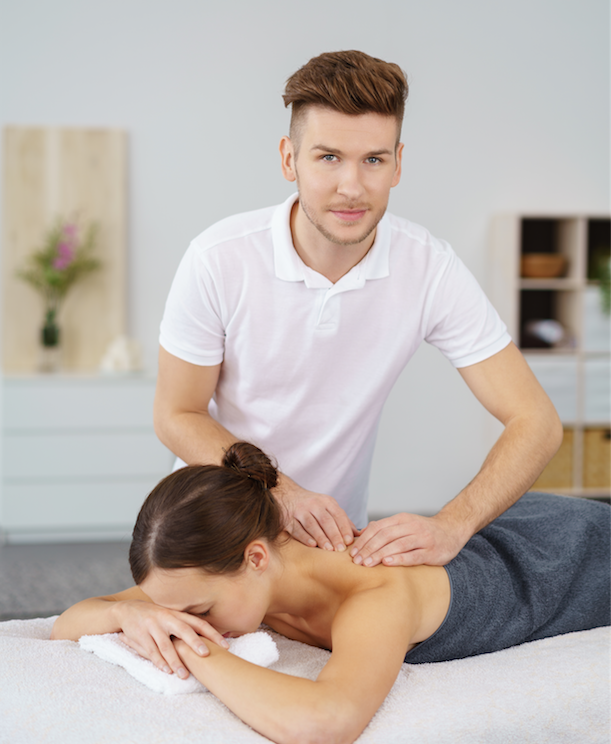Becoming a male therapist
What is it like for a man trying to carve a career as a therapist in a female-led world? Georgia Seago investigates
Beauty is one of the few industries dominated by women, and is rightly celebrated as such. But are we doing enough to encourage men who want to break through? In Babtac’s 2015 Annual Survey of its members, only 18 out of 673 total respondents were male, making up just 12.67% of the sample. Over the past five years LCBT (London College of Beauty Therapy) has seen just 21 men graduate from its Beauty Therapy and Media Make-up courses.
Meanwhile, 83% of mobile and salon-based therapists in Salon Services’ 2016 Beautiful Britain report said they’d seen an increase in male customers since 2014, and this growing demand highlights the disproportionate number of male beauty therapists. “I think some people feel uncomfortable because they have the misconception that a man will be judging a woman or looking at her in the wrong light,” says Chris Finch, owner of The Wellington Street Day Spa & Co near Manchester. “Even recently I had a woman call by because she’d done some research of salons in the area and decided mine was the best. She asked if I had any female therapists. That took me aback a little bit, to have someone say that 10 years into my career.”
Common misconceptions
Finch says he’s actually experienced more positivity than negativity in his career so far, although he has encountered potential clients who couldn’t understand how a man would be able to carry out treatments to their liking. This is one of the preconceptions men who want to enter the industry are still faced with, as well as issues of modesty and male-female dynamics.
“So many male therapists find it difficult to find a course that caters to their needs,” says Andy Rouillard, male waxing specialist and owner of Axiom Bodyworks and Wax Academy in Hampshire. “I still hear from potential male therapists that local colleges and even private trainers place very onerous and unrealistic expectations on them – they’re required to bring their own models or they’re not allowed to wax female students, for example. If it were any other industry there would be uproar. It’s reverse sexism.”
Knock backs
Rouillard says he was met with outright refusal from some beauty course providers when he started in the industry 16 years ago, while others “put so many barriers in place that it just became impossible.” His experiences are similar to those of Michael Blackham, a therapist, teacher and elite educator for nail brand distributor Grafton International. “It was quite difficult when I started in the industry. I was the first guy to do a beauty therapy course at my college and there were a few girls who couldn’t expose their bodies in front of a male for religious reasons, so I almost didn’t get on the course,” he says.
When he graduated, Blackham found it didn’t get any easier: “After interviews [at salons] every person said: ‘I’d love to take you on but I don’t know how my female clients are going to be around you and I don’t have many male clients’”. The setbacks drove him to set up on his own after six months of unsuccessful attempts: “Those experiences of discrimination actually gave me a kick in the right direction. It’s been my saving grace,” he adds.
By no means has every man in the industry had negative experiences. Despite being the first man to ever complete the HND Beauty Therapy course at Chichester College, Martin Duffy, owner of The Rowan Tree salon in Arundel, says he has never been faced with any challenges or barriers to his career because of his gender. “My tutors never made it an issue so it never became one,” he says. “When it came to looking for a salon job I had no difficulties either. I got the second job I applied for and don’t even remember the fact I was a man coming up in the interviews. If I can manage to make a living out of it in a conservative rural area, I can’t see why it should be hard in more vibrant cosmopolitan areas,” he says.
Bright start
Zachary Falb, international business and training coordinator for lash extension brand Novalash, says he too feels very positive about his early experiences. “I found that as a male in the beauty industry, and especially the female-led lash market, I have been welcomed with open arms,” he says. Client modesty can be more of a concern when male therapists are treating female clients, but Rouillard believes it shouldn’t exclude male students from being accepted onto courses. “It should be down to the education provider to accommodate that and provide alternatives. You shouldn’t put barriers in the way of students just because of their gender,” he says.
At Axiom, students perform treatments on each other, regardless of gender, to build up their skills and experience of different clients. Finch also does a lot of intimate waxing at The Wellington Street Day Spa & Co and thinks female clients appreciate his approach. “I get on with the job rather than fussing around them. Obviously I protect their modesty but they like to see someone who’s competent,” he says. “There would be nothing worse than going to a male therapist for an intimate wax if they were embarrassed to be doing it.”
Blackham emphasises how important it is for male therapists to be thorough and clear when giving female clients instructions in treatments where the body is exposed: “You have to tell the client what you’re doing in your head while you’re working so she feels comfortable and knows you’re not thinking about or judging her body,” he explains. He knows of salons that have had to install security cameras after allegations of sexual assault, and others that simply don’t allow male therapists to do intimate waxing on women, to avoid any issues. “Obviously when you’re doing a Hollywood wax you’ve got to touch everything, and if instructions from the therapist are vague that can get really difficult,” he says.
Although there are challenges that might not exist for women in the industry, every therapist we spoke to emphasised how rewarding and successful a beauty career can be for men. Finch says that while men generally have to work harder to prove themselves, “some of the opportunities I’ve had have been phenomenal and I believe that’s because I’m male. It’s a blessing rather than a curse.”

Turning point
Blackham adds: “In the last three or four years the industry has really turned around. It now grabs men and says ‘we want you on our team’.” Rouillard believes the increasing demand for salon treatments tailored to men’s needs is fuelling this change. “As we’re seeing more male clients come into our salons, that has naturally led to more men wanting a career in the industry,” he says.
However, there is still a lot more education providers could do to welcome men onto beauty courses. “I’d like to see more colleges introducing male grooming modules or linking in with other courses – waxing and sports massage go very well together,” suggests Rouillard. The recent resurgence of traditional barbering and wet shave services could also be a good inroad into skin treatments for those already training in barbering. “Barbers could offer a little bit of facial waxing or a manicure alongside
their shaves and haircuts. It’s such a great way of getting more guys into the industry in a non-threatening way,” Rouillard adds.
Male focus
A focus on grooming rather than beauty could be enough to encourage men to look at the industry differently. Finch says: “Men need to see it as a career for treating men, not just women. Education providers need to target their marketing so men feel comfortable on their courses.” Blackham thinks male-only courses stop male learners feeling out of place. “It would totally break the stigma – as soon as education providers got more men on courses, after a couple of years seeing a male therapist would be as normal as seeing a male hairdresser.”
This may not be too far off – private education provider Lifetime Training is currently looking at developing a malespecific treatment course. Sheral Griffin, beauty quality and curriculum manager at Lifetime, commented: “At the end of the day, creating a successful career as a beauty professional is about developing an appropriate and professional set of skills coupled with excellent client care. These attributes aren’t gender specific.” Falb feels that more male role models would encourage others into the field. “If there was more visibility of male educators it would encourage other men to follow in their footsteps,” he says. “The perception of beauty doesn’t have to be masculinised or feminised – it’s just an industry.”
